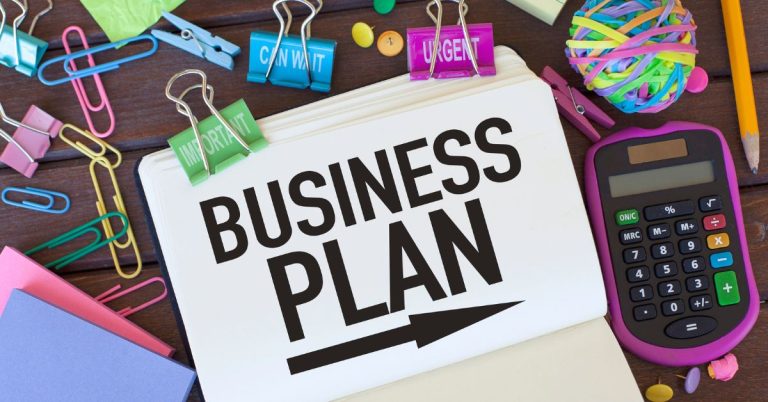Things to Consider When Setting up a Business: Full Guide
Starting a business requires a lot of work and planning. You need to make sure that everything goes smoothly from the beginning. Here are some questions you might want to ask yourself before launching your venture.
1. How do I know if my idea will work?
2. Do I need a licence?
3. What type of business structure am I looking for?
4. Where will I find customers?
5. Will I need investors?
6. Do I need to register with HMRC?
7. What happens next?

1. A great idea
Great ideas are essential for success, according to entrepreneur and author Simon Sinek. He says that people often overlook the importance of having a good idea because it seems too simple. However, he adds that most successful businesses start out as simple ideas. People don’t realize how much effort goes into making something big happen. “Startups should focus on developing products or services that no one else offers,” writes Sinek. “If you do, you’ll find yourself in a position where you’re able to make decisions about what to build next.”
In his book Start With Why, Sinek explains why starting with a great idea makes sense. When you think of a startup, you probably imagine a young person working alone in a basement or garage. But Sinek points out that many startups actually start with a team of people. And while those teams might include a CEO, CTO, and CFO, they usually also include a designer, engineer, marketer, salesperson, and accountant. In fact, there are over 3 million startups in the United States today.
But even though most companies start with a small team, Sinek argues that the majority of them fail. So, why does that happen? One reason could be that they focus too much on the wrong things. They spend too much time thinking about the money side of things. For example, they worry about whether investors will invest in them, or how they will pay rent. Instead, they should put more energy into figuring out what customers want. If they do that, they’ll attract customers, and eventually investors.
“2. Focus on the customer”
For some reason, entrepreneurs tend to focus on building products that solve problems for themselves. But Sinek suggests that this isn’t always the best way to go. “You should never design a product just for yourself,” he writes. “The world needs a lot of different kinds of products, and the ones that succeed are the ones that help lots of people.”
This doesn’t mean that you should ignore your personal goals. You still need to work hard to achieve them. But it does mean that you shouldn’t try to sell a product that only helps you. You should look for ways to improve people’s lives. This includes helping customers save money, improving health care, creating jobs, and reducing pollution.
2. Funding and budget
Business loans are very helpful for startup companies who want to purchase big ticket items like machinery, equipment, inventory, etc. There are many different ways to raise money for a startup. You can start out with friends and family and look for grants. If those don’t work, you can go to local banks and credit unions. Or you can do what I did – shop around. I looked at multiple lenders and found some great terms and rates.
Crowdfunding
A new form of fundraising where people donate money online and/or offline to support an entrepreneur’s project.
Invoice Financing
An invoice financing company will lend money against invoices and payments. This could help you to pay off debts faster. In fact, it can even help you to build up cash reserves. This is because most businesses spend about 70% of their revenue within 30 days. So, if you’re able to repay your debtors early, you’ll have extra funds to use for marketing and advertising.
Angel Investing
People who invest in startups without expectations of profit. These investors provide capital, mentorship and connections.
3. What is your company’s strategy?
Business plans are essential for any entrepreneurial venture. They help you understand what it takes to grow your business, how much it costs, and whether you’re headed toward success or failure. A competitor analysis can give you insight into how your competitors operate. And paying up front can save you money over time.
4. Legal documentation
Legal documentation is an important part in starting a new company. This includes incorporating your business, drafting contracts, and establishing trademarks. These legal documents are required to protect your intellectual property rights, including copyrights, patents, trademark registrations, and trade secrets.
5. Passion
The secret sauce behind every successful startup is passion. And while many entrepreneurs are passionate about their ideas, most lack passion about themselves. They’re afraid to show their true selves because they don’t believe they deserve success. But the truth is, everyone deserves success — even those who feel like failures. In fact, I’d argue that anyone who feels like a failure needs to start acting like one.
If you’ve ever felt like a failure, you know how hard it is to overcome that feeling. You might try to convince yourself otherwise, but deep down, you still feel like a loser. So why do we keep trying to prove ourselves wrong? Why do we spend our lives beating ourselves up over things that aren’t even under our control? Because we’re scared. We’re scared that no matter how hard we work, there’ll always be someone better than us.
But here’s the thing… There isn’t. And if you really want to succeed, you need to stop being scared of failing. Failing doesn’t mean you’re stupid. Failing doesn’t make you weak. Failing makes you human. Failing makes you stronger.
And the best part is, once you learn to embrace failure, you won’t just become fearless; you’ll actually start living life fearlessly.
So let me ask you, “What’s stopping you?”
6. Find the right equipment
Small Businesses are often overlooked when it comes to investing in technology. They don’t have the budget to buy expensive hardware such as servers and laptops. But they do need to make sure they’re getting the most out of their money. Here are 5 things small businesses need to consider when buying computers for their office.
1. Choose the right size
If you’re looking to save some cash, there’s no reason why you shouldn’t go for a smaller laptop. However, if you plan on doing a lot of work on your computer, you’ll probably need something bigger. If you’re planning on running multiple programs at once, you might even need a desktop PC.
2. Consider the power requirements
A lot of people think that choosing a larger screen automatically means that they need a powerful graphics card. This isn’t always true though. You could end up spending thousands of pounds on a high-end gaming rig just because you wanted a large display. Make sure you know what you want to use your computer for before you choose the specs.
3. Think about storage space
You don’t necessarily need an enormous amount of hard disk space. Most people tend to fill their drives with movies, music, photos and documents. So unless you really need lots of room, you should opt for a lower capacity model.
7. Know when aid is required
Social media is an important part your marketing strategy, but it’s not just about posting pictures of yourself and your products. You need to use social media to interact with your audience. If you’re not responding to comments and questions, you’re missing out on opportunities to build relationships with potential clients.
You might think that you’ll never need help, but there are times when you really do. For example, if you’ve been working on a project for months and still haven’t finished it, you probably need some outside assistance. Or maybe you’re having trouble getting paid invoices approved. These problems aren’t unique to one industry, either; they happen in every type of business.
If you’re struggling with something, ask someone else for help. Post a question on LinkedIn or send a tweet asking for advice. Someone will likely reply with helpful tips. When you receive feedback from others, take action on it. Don’t ignore it because you feel like you already know everything.
Rules applicable to your company type
There are three main categories of business: Service, Merchandizing and Manufacturing. Each category has its own advantages and disadvantages. In addition, there are three types of businesses: Product, Process and Project Management.
Service Businesses
A service business is one where you provide a product or service to others. Examples include lawyers, dentists, accountants, plumbers, electricians, hairdressers, etc.
Pros:
You don’t have to worry about inventory costs because you’re selling directly to customers. You just sell what you produce.
Cons:
Your profit margins tend to be lower because you’re paying for overhead like rent, utilities, insurance, taxes, etc.
Frequently Asked Questions
What assistance is available for the self-employed?
Self employment is great – we know that. But it does come with challenges. Thankfully, there are lots of support organisations out there ready to offer guidance. They include:
• The government-backed advice services around England, Scotland and Northern Ireland. These provide free one-to-one counselling and can help with anything from starting up a business to finding funding.
• Local enterprise partnerships (LEPs). LEPs work across local authorities and aim to promote growth and prosperity within communities. They can give you access to grants and loans.
• Community interest companies (CICs). These are independent businesses run by people interested in helping others. They often focus on social issues such as homelessness, poverty and unemployment.
• Social enterprises. This term covers both charities and commercial ventures that use profits to benefit society.
• Volunteer centres. These offer practical help to volunteers, including training, mentoring and networking opportunities.
• Small Business Forums. You’ll find these online forums in every region of the UK. They’re open to anyone looking for information about running their own business.
What you must do when launching a firm and going into business for yourself
If you want to start a business or set up a freelance career, there are many considerations to take into account. From choosing the best type of business to how much money you need to make, here are some of the most important questions to ask yourself.
How Much Money Do I Need To Start A Business?
The amount of money required to start a business varies depending on what sort of business you’re planning to launch. If you want to open a shop, you’ll probably need somewhere around £10,000 – £20,000. On the other hand, if you plan to run a small online store, you might find it easier to get away with just a few hundred pounds.
Where Should My Business Be Located?
There are lots of factors to consider when deciding where you want to base your business. For example, if you’re running a restaurant, you’ll need to look at whether your target market lives locally, as well as whether there are enough customers nearby to support your business. You could even try opening a pop-up bar while you test out your idea.
Do I Need Any Special Licenses?
If you’re planning on launching a business that requires specific licenses, such as selling alcohol, you’ll definitely need to check with local authorities to see if you require one. For example, you won’t be able to sell food without a food hygiene certificate unless you’ve been granted permission.






